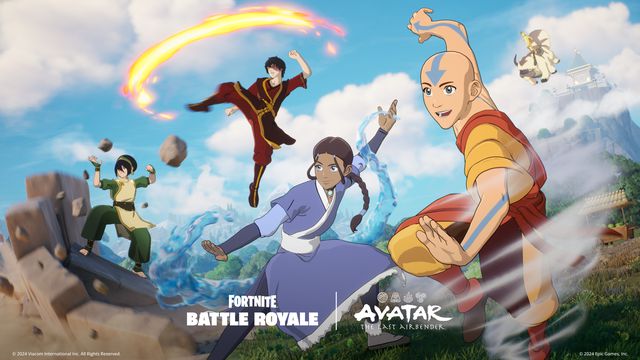In most survival games you’re lucky if you have a shelter fashioned from a few sticks and leaves. Maybe a little fire you can use to cook nasty-tasting berries that do just enough to keep hunger at bay. And while Nightingale starts off in a similar way, with little more than a handful of sticks and stones to keep you alive, it’s not long until you’re able to build something altogether more impressive.
Axes are pretty simple to craft early on and are extremely useful for chopping down trees, which can then be turned into logs. Before long you have enough to build a simple log cabin; nothing too fancy, but it provides shelter from both the elements and the local wildlife. It looks quick and simple to make too; although I wasn’t able to play Nightingale at gamescom 2023, the developers did showcase how it’s created a simplified crafting system designed to make building anything – from simple tools to impressive buildings – quick and easy. So much so, in fact, that within a few minutes our base has expanded to include additional rooms and levels, plus crafting benches that enable you to build bigger and better things. Moments later, we’re able to upgrade once again, switching out bland log panels for ornate pagodas. If this is what life is like when you’re on the brink of survival, count me in.
At its most basic, Nightingale is a survival game like Sons of the Forest and Valheim, but that’s doing it a disservice because it’s by far the most stylish and elegant survival game I’ve ever seen. The Realm Walkers are the epitome of Victorian chic and even manage to make an animal skin look great, and the way they use umbrellas to glide from high ledges smacks of Breath of the Wild crossed with Mary Poppins, and it’s wonderful.
Nightingale’s aesthetic is certainly the most striking aspect of the game and its ‘Victorian gas-lamp’ vibe is something that runs throughout. Even though you travel from one dimension to another in the hope of returning to your home world of Nightingale, everything feels like it has a place and fits within the world. Your first encounters are with hostile wildlife that look Lovecraftian, and the Bound – interdimensional beings that live between realms – could easily be from Call of Cthulhu. And there are much bigger threats you’ll encounter too, such as a Sun Giant who we see for the first time in the middle of a swamp.
There are apparently two ways to approach such a beast. You can make an offering, on this occasion a spyglass. If the gift appeases the giant, you’re rewarded with resources. But if not, the giant becomes angry and you either have to flee or fight. Unsurprisingly the sun giant turned its nose up at the meagre spy glass and things quickly took a turn for the worse. The battle I watched was three versus one, the Realm Walkers carrying shotguns and rifles, and beginning the assault on a multi-storey pagoda complete with sniper nests, which they built in the moments leading up to the battle. But a wooden building is no match for a giant that wields the power of the sun, and it’s quickly demolished.
Combat is fast but considered: since ammunition is extremely limited, every shot counts and therefore hitting one of the Sun Giant’s weak spots – in this case either its head or the medallion around its neck – is crucial. Numbers flash on screen every time you land a hit, and when the sun giant unleashes a dazzling blast from its medallion, lethal beams of burning light arc across the battlefield. But those blasts create heat, which you can use to your advantage, using your umbrella to ride the updraft into the sky to attack from above. Link would be proud.
Although defeating creatures this huge and fearsome isn’t easy – and the game doesn’t scale difficulty if you’re part of a smaller party – the rewards are bountiful, and often help to craft new items that allow you to explore further.
Victory also rewards you with realm cards, which are used to open up new dimensions via portals you can build. There are many different types of realm card – including biome that decide what the world looks like, and ones that influence the kind of wildlife you’ll discover – and together they determine the kind of dimension the portal leads to.
Although the cards directly impact the world, each is procedurally generated so you’re never quite sure what you’ll encounter. “It could be a desert, it could be a swamp, or it could be a forest,” explains Aaryn Flynn, CEO of developer Inflexion Games. “Then you earn more and more realm cards as the game goes on. Part of the main quest line is to go to several large realms and uncover their mysteries and solve certain things in there and progress through them. Eventually you reach the climax and overcome the big quest.”
Story is therefore key to the experience – hardly surprising considering Inflexion is made of ex-BioWare devs, Flynn included – but at the same time player choice is integral to what the game sets out to achieve. “There's a mainline quest when you start the game. The antagonist, Puck, offers you some help to get you established and then he'll set you on a journey, which is ultimately to return to Nightingale and return to home,” Flynn explains. “It's a really magical city where so many of the Realm Walkers call home and make their base. But as you realize, you're very far from that. The quest really gives you progress and rewards and stuff. It incentivises you to do certain things, but at the same time I just want players to do their own thing with their friends. That's the balance we're striking here, because if you go too far the other way it feels too constraining, almost like a chore list.”
According to Flynn each of the realms are around two kilometers squared, and there are some you have to visit to follow the quest, but part of the fun is also seeing what else is out there beyond those compulsory locations. There are points of interest that, although not integral to the story, could reward your curiosity with much-needed resources, if you’re brave enough to explore. “One of the overarching umbrella statements I love [about Nightingale] is ‘endless adventures’’, says Flynn. “We want you to go on endless adventures as you play these cards, to think about what you want to do and maybe even play with friends and discover things you couldn't go to just by yourself.”
That, from what I’ve seen from the game and heard from the developer, is exactly what Nightingale is all about. Although it’s a survival game, the focus is on exploration and having a good time. Yes, you need to eat and rest, and also adapt your strategy depending on the environment you’re in (once again evoking Zelda, you’ll need to dress for cold weather), but it never gets in the way of soaking up what’s around you. That something I’m fully behind, and if the story matches the ambition of the exploration, Nightingale has a lot of promise.
Alex is IGN's Features Director and Head of UK Studio, and has an unhealthy obsession with LEGO. He used to have a Twitter account before it was shut down.






